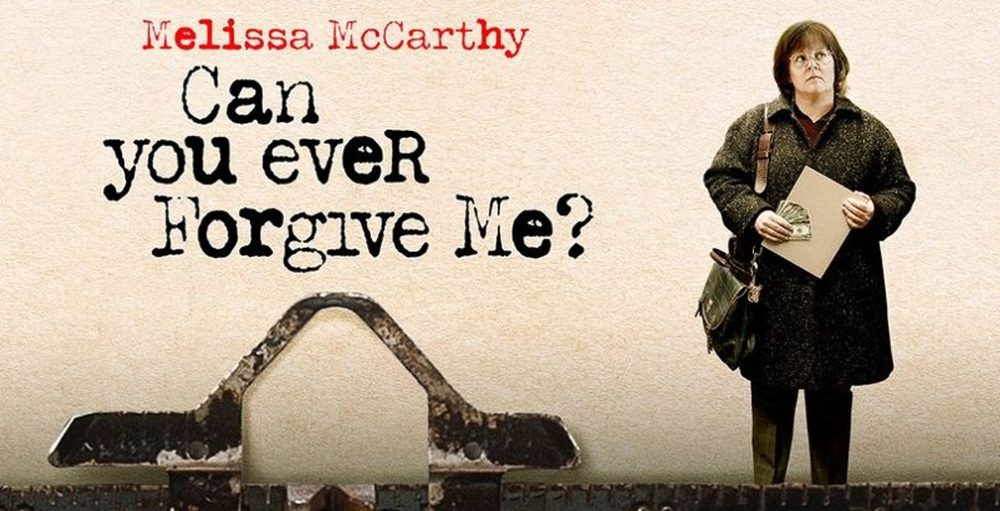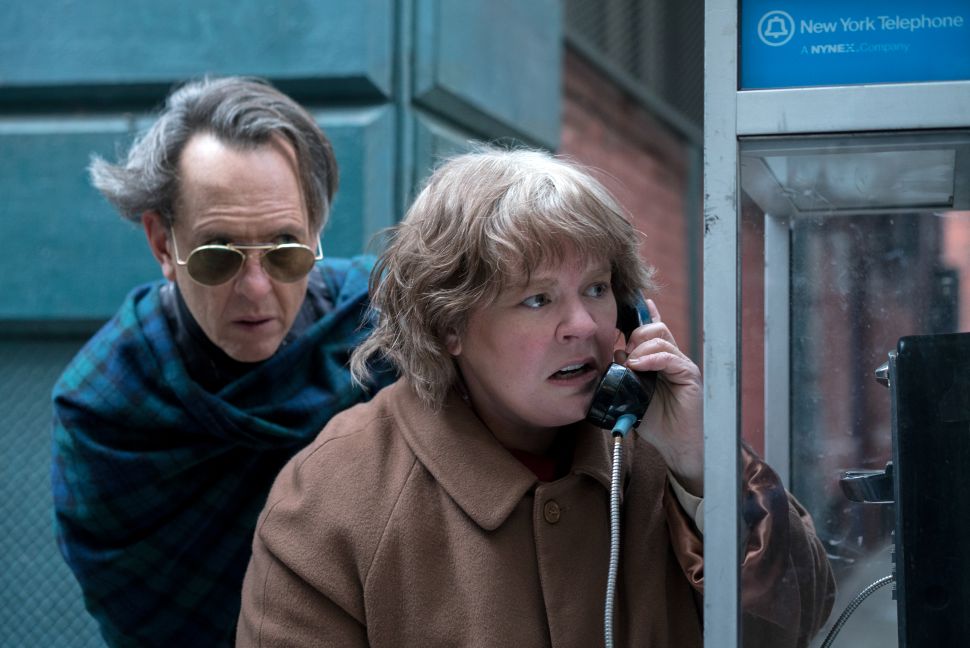Quick Reads
Can you ever forgive me?
Review: Apart from the performances, the film has little newness

Melissa McCarthy, who is mostly known for her comedic work, earned an Oscar nomination this year. The film that she was nominated for ‘Can You Ever Forgive Me' hardly had anything to excite me. There were films like ‘In America' or ‘Philomena' or ‘Another Year' from the previous years, which I would call as ‘writer's films', benefited by the writing and the performances from the film. Their nomination was a sweet surprise every year. This film felt right up from that alley.
I was not particularly interested in it, but that nomination solidified it as a must for me. Not that Oscars are the trademark of quality, because they are far from that. But rather because it has been recognized by almost every award ceremony leading to this. And a comedy actor hardly receives its due in such cases. Steve Carell was an example who had a brilliant shift from a comedic actor to a dramatic one. And he gave a phenomenal performance in ‘Foxcatcher', a film he was rightfully rewarded for. Well, Melissa didn't disappoint either! She rather surpassed my expectations to probably be one of the strongest performances from the year.
In the times, when films dealing with social taboos related to gender, race are taking a high ride in the award ceremonies, this film felt like an easy bet at first. Not that a film being made on such a sensitive topic is wrong. But, even an ordinary film being rewarded for just the message is something that doesn't go well with someone like me. ‘Can You Ever Forgive Me' is mainly focused on two characters- a lesbian writer and her gay partner-in-crime. But it hardly asks for sympathy for characters for being like that. We do get a perspective from their point-of-view but the pity hardly derives from the gender they identify with.
The film which is based on the author's book by the same name chronicles the events from the life of Lee Israel as a literary forger. The memoirs by her own, and later adapted by Nicole Holofcener and Jeff Whitty for the screen, it talks about the part which she calls herself to be the best time of her life. And this was said at the time of her, confessing to her own wrongdoings. "It's the only time recently, that I can remember being proud of my work", she says. That alone explains how miserable her life must have been.
 Credit- Fox Searchlight
Credit- Fox Searchlight
From the very beginning, she seems to be soaked in the anguish and suffering from loneliness. She was so afraid to be close to any person that she would seem to take efforts to distance from them. Her work in the past wasn't something that would attract many peers towards her writing. Her subjects were either niche or she was not particularly active in the process of writing lately. She didn't dress or behave the way, an ‘accomplished' writer would. In a party of her publisher where she goes uninvited, she encounters a writer, a white male; commenting on how a ‘writer's block' is a notion created by the lazy people. She grunts in disdain because it was exposing herself with her own self-destructive behavior.
She started writing these letters, forging someone else's writing to be precise. Not as a premeditated decision but because she found it as an easy option to earn money. She decided to go along with it for the pleasure it gave her of finally having something of worth her talents. And with the returns she was getting, it hardly mattered for her if she got caught.
In the film, when she had to say something about why she lost the job, she blames it on ageism, as if it's a real term. Or even if it is, as if it's a severe problem. She had grown old to the point where she had become a lonely soul who was often looked at by disdain. Her age would be the factor for her, to be seen as a wasted seat in her workplace. But again, that was her self-pity and inability speaking when someone asked about her situation. She was helpless and had hardly any reason to live for or to get better for. Other than probably a cat. And also Jack Hock whom she eventually meets.
Jack Hock was an aging and openly gay man in that period, whose health was deteriorating just as fast as the growing wrinkles on his skin. But he was wise or rather he had to be. Because the world was cruel and unforgiving for a person like him, he had to find solutions to every situation and had to act strong even when it seemed the hardest thing to do. That's what completed Lee's character when she was in a situation where she hardly had planned what she ought to do the next.
When they first met in the bar, they didn't hide their own sadness. They rather preferred to laugh on their own misery. Even what they said to each other was not direct yet they clearly understood each other. That's easily how they connected with each other. In a scene where she felt embarrassed to show her own place to him, which was almost a reflection to her situation over the years; all he needed to say was "It's just me. There is nothing to be ashamed about."
He says, in a scene, that he always wanted to be an actor even after accounting to having no real ambitions throughout his life. He rather liked to act according to different personas not just to survive but probably to spice up his own life, which was rather dull and boring otherwise. That was his way of living that he came on terms with. She was rather reserved to expose who she really could be. She had the knack to hide behind a personality as if it's her own skin. As told indirectly in a scene, she could write like Dorothy Parker better than Dorothy Parker could write herself! But she was rather afraid. Not shy, but probably living with the fear of losing what she had.
She was living while constantly clinging to the past. She couldn't get away with the tragic present that she always relied on the hope of reviving her past. She wanted to be forgiven and she couldn't keep it behind either. Maybe Jack realized that. Maybe that was the reason why he rather acted cruelly to something, that was so dear, so close to her. It was the thing, or one of the things, that stopped her from exploring more contours within her. She was underestimating herself for all the wrong reasons. She was hiding who she was with the protective layers of pity while writing about the things that probably made her feel safe. She was scared to explain to others let alone accept her own identity.
The film which dwells in a tragicomic territory takes advantage of McCarthy's deadpan humor and uses it to infuse a tone that would probably remind one of the Classic-Hollywood era. Not that the humor was similar. In fact, it was nowhere as obvious as it used to be. But the way it was infused with her sorrowful existential dread was what reminded me of it. The jazz score compliments it and hardly feels what such films try to do, to induce a dose of nostalgia about the period. Rather benefits for the tone of the film to be consistent.
It does seem obvious or predictable of the plot where she tries to redeem herself by confronting to her wrongdoings. Perhaps that was too simple. It hardly had anything surprising that subverts itself in the next moment. But the simple structure is what helped the performances to shine even more. Melissa aces the challenge of playing an unlikeable persona with an ease and a sympathetic tone that what the director would have wanted in the film. And she used her weight for her benefit in portraying the rudeness, temper and existential panic that she was going through. Richard Grant complements her in the bittersweet drama with his demeanor and body-language without going overboard. Both of them were truly the highlights of the film.





